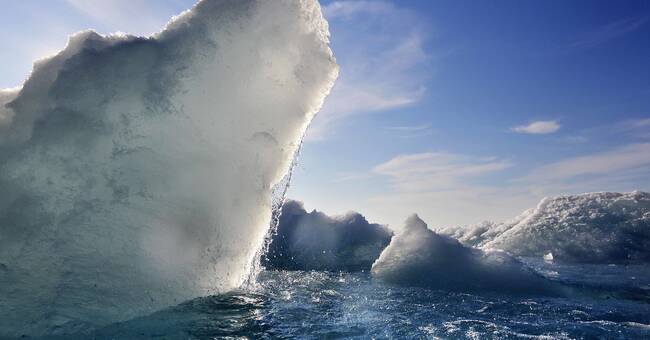Climate change is driving faster warming of the Arctic than anywhere else on earth.
Researchers have previously calculated that rain will be the dominant rainfall in the Arctic around 2090 in some places and during certain seasons.
But now researchers have compared the new generation of climate models called CMIP6 with the previous generation's climate models, CMIP5, to investigate what the rainfall situation will look like in the Arctic in the future.
"The Arctic is sensitive"
The researchers discovered that the shift when it rains more than snow can occur as early as 2060 and 2070 - that is, more than two decades earlier.
- The entire Arctic area is a little more sensitive and responds more quickly to climate change than previous calculations.
This is an important result and points out that this region is a sensitive area, says Erik Kjellström, professor of climatology at SMHI who has read the study.
When the ice sheet melts in the Arctic, there is more open water, which leads to increased evaporation.
This in turn makes it rain more.
A wetter Arctic with less snow cover strengthens the so-called albedo effect, which is a measure of the earth's reflectivity.
- When snow and ice decrease in scope, the surface does not become so white anymore and then that surface does not reflect sunlight as effectively.
This means that incident sun rays are absorbed more by the system.
How to get a more or less ice-free Arctic blocks and drives climate change and strengthens warming.
It is serious, says Erik Kjellström.
Animals and plants in the Arctic are affected
Another effect of a wetter Arctic is that the ecosystems in the area can be disturbed.
- If all of a sudden there are alternating winters where it rains, melts, snows and freezes every now and then, it becomes a different type of snow cover and it affects the vegetation below.
And it also affects animals such as reindeer that do not find food in the same way, says Erik Kjellström.
In addition, there are large areas of permafrost with frozen methane, which is a powerful greenhouse gas that can begin to leak into the atmosphere if it begins to melt.
- There is a great deal of uncertainty also in the climate problem.
There is a lot of methane bound in these areas and should it be released in large quantities it can further strengthen the heating.
These are big and difficult issues to deal with from a climate research perspective.
The study was published in Nature Communication.
Javascript is disabled
Javascript must be turned on to play video
Read more about browser support
The browser is not supported
SVT does not support playback in your browser.
We therefore recommend that you switch to a different browser.
Read more about browser support
Hear the expert on tipping points: "It's a battle against the clock" Photo: David Goldman / AP / TT, SVT, Andre Penner / AP / TT

